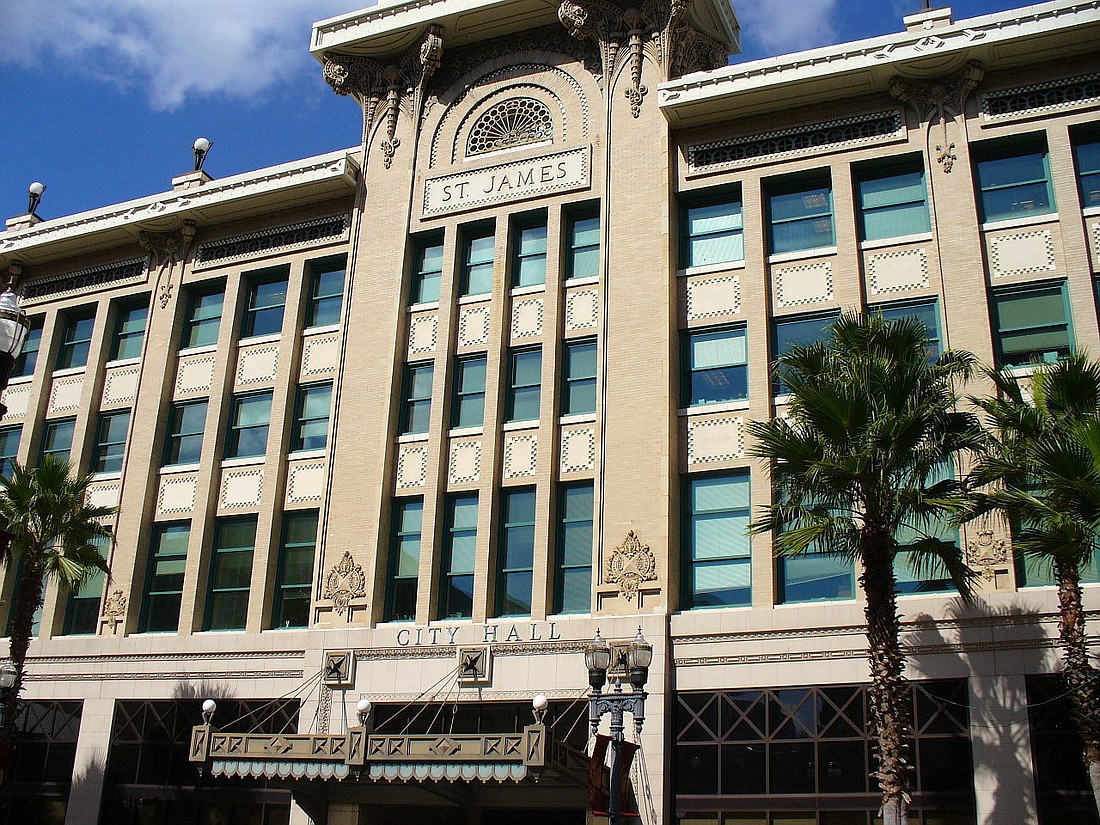
The Jacksonville City Council delayed a decision on a request by an Atlanta-based developer to change the Downtown overlay code to allow building self-storage facilities.
After more than an hour of debate and opposition from more than 120 Downtown and San Marcos residents and business owners, the Council voted 12-7 to rerefer Ordinance 2021-0821 to the Land Use and Zoning Committee.
The bill, introduced by Council member Reggie Gaffney in November, would change the Downtown overlay code unanimously approved by the Council in 2019.
Driver, McAfee, Hawthorne & Diebenow partner Steve Diebenow is the attorney representing developer and real estate company The Simpson Group which he says is under contract to purchase a Downtown Southbank property where they want to build a self-storage center.
The property is bounded by Prudential Drive and Home Street.
Diebenow said June 7 that he approached Gaffney to file the bill and Council member LeAnna Cumber, who represents the Southbank and neighboring San Marco, declined to file the bill.
The move to change the overlay also was opposed by the Downtown Investment Authority, the Downtown Development Review Board and the city Planning and Development Department.
The DIA board recommended, if Council passed the bill, to only allow self-storage units within 500 feet of the Downtown boundaries.
Diebenow drafted an amendment approved by the Land Use and Zoning Committee on June 7 that loosened that recommendation to say a self-storage center would be permitted if any portion of the building was within 500 feet of the boundary.
Although the bill was approved 6-1 by the LUZ committee, Council members voiced concerns June 14 about the strong opposition to the proposal from San Marco and Southbank residents, businesses and organizations.
Council members Cumber, Danny Becton; Matt Carlucci; Al Ferraro; Michael Boylan; Ju’Coby Pittman; and Joyce Morgan voted against that move and wanted to take the final vote June 14.
During the meeting, Cumber said the amendment could allow storage facilities deep within the Downtown boundaries and negatively impact the millions of dollars in private development incentives awarded by the city over the past decade.
She said the bill reverses previous policy endorsed by Council and worried that ignoring the recommendations of DIA and the Downtown Development Review Board would weaken the independent authority and its Downtown planning.
“Changing the entire overlay for one lobbyist who has a client that made a bad business decision is a colossally bad idea,” Cumber said June 10.
She said Council should not change the overlay throughout all Downtown for the plans of one developer.
“When people look at the city and they say why can’t we be Tampa or why can’t our Downtown grow? Why do we have this potential we never seem to realize? This is why. We don’t have a vision,” Cumber said.
The city’s Office of General Counsel said during the meeting that the developer could apply to allow planned unit development on the site instead of changing the entire Downtown overlay, which would impact both the Northbank and Southbank.
“We don’t have a plan that we stick with, and we change what people are trying to do on the whim of one developer,” Cumber said.
Bill sponsor Gaffney, who represents the Downtown Northbank, said he was “on the fence” about his vote June 14 after hearing more than 20 public comments and receiving nearly 100 emails in opposition to adding self storage as a permitted use Downtown.
DIA CEO Lori Boyer introduced the Downtown overlay legislation in 2019 and drafted much of the policy.
Boyer said the overlay that Council approved three years ago had areas where self-storage and light industrial is allowed by exception.
“Our board’s concern was the increase or proliferation of these facilities within Downtown and their adverse effects on activation and density of population and uses within Downtown,” Boyer said.
Groups including Scenic Jacksonville and the San Marco Preservation Society spoke against the policy change.
Council LUZ committee Chair Rory Diamond recommended the bill be sent back to his committee to try to find a compromise that the developer and community could accept.
The committee could debate the bill as soon as its June 22 meeting.